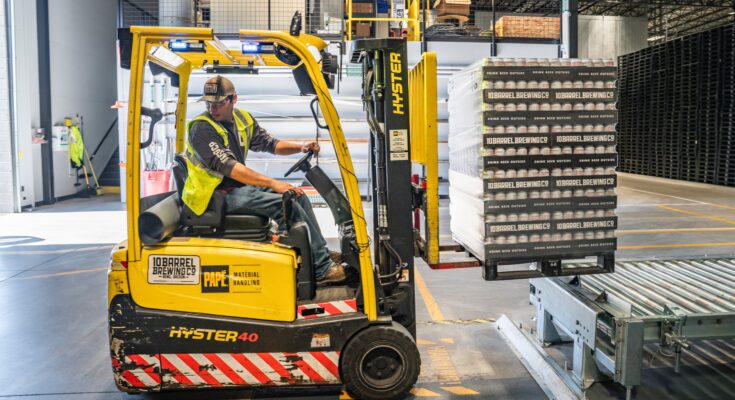The Carbon Capture And Storage Global Market Report 2024 by The Business Research Company provides market overview across 60+ geographies in the seven regions – Asia-Pacific, Western Europe, Eastern Europe, North America, South America, the Middle East, and Africa, encompassing 27 major global industries. The report presents a comprehensive analysis over a ten-year historic period (2010-2021) and extends its insights into a ten-year forecast period (2023-2033).
Learn More On The Carbon Capture And Storage Market:
https://www.thebusinessresearchcompany.com/report/carbon-capture-and-storage-global-market-report
According to The Business Research Company’s Carbon Capture And Storage Global Market Report 2024, The carbon capture and storage market size has grown rapidly in recent years. It will grow from $5.43 billion in 2023 to $6.23 billion in 2024 at a compound annual growth rate (CAGR) of 14.8%. The growth in the historic period can be attributed to environmental regulations and policy support, growing concerns about climate change, investments in clean energy, industry transition and decarbonization, corporate sustainability initiatives.
The carbon capture and storage market size is expected to see rapid growth in the next few years. It will grow to $10.79 billion in 2028 at a compound annual growth rate (CAGR) of 14.7%. The growth in the forecast period can be attributed to government funding and incentives, increasing carbon pricing initiatives, rapid industrialization in developing regions, global commitments to net-zero target, collaborative industry initiatives. Major trends in the forecast period include technological innovation and cost reduction, advancements in ccs technology, investment and funding landscape, government policies and regulations, public and corporate perception.
The growing global carbon dioxide emissions are expected to propel the growth of the carbon capture and storage market going forward. Carbon dioxide emissions, often known as CO2 emissions, are those caused by the combustion of fossil fuels and the production of cement. They also include gas flaring and carbon dioxide created during the use of fuels that are solid, liquid, or gaseous. Increasing carbon dioxide emissions increases the market for carbon capture and storage, which is used as a method to lower carbon emissions by separating, treating, and transporting a stream of carbon dioxide (CO2) from industrial sources to a site for long-term storage. For instance, in March 2022, according to the International Energy Agency, a France-based independent intergovernmental organization that offers research, statistics, and policy recommendations for the whole global energy sector, carbon dioxide emissions increased by 6% to reach 36.3 billion tons in 2021, a record high compared to previous years. In 2021, coal contributed more than 40% of the increase in overall CO2 emissions worldwide, which peaked at 15.3 billion metric tons. Therefore, growing global carbon dioxide emissions are driving the carbon capture and storage market.
Get A Free Sample Of The Report (Includes Graphs And Tables):
https://www.thebusinessresearchcompany.com/sample.aspx?id=10170&type=smp
The carbon capture and storage market covered in this report is segmented –
1) By Product: Pre-Combustion, Industrial Process, Post Combustion, Oxy-Combustion
2) By Service: Capture, Transportation, Utilization, Storage
3) By End-Use Industry: Oil And Gas, Coal And Biomass Power Plant, Iron And Steel, Chemicals, Other End-Use Industries
Product innovations are a key trend gaining popularity in the carbon capture and storage market. Major companies operating in the carbon capture and storage market are focused on developing innovative products to strengthen their position in the market. For instance, in August 2021, Exxon Mobil Corporation, a US-based company that operates in the carbon capture and storage and oil and gas sectors, collaborated with Berkeley and Lawrence Berkeley National Laboratory and the University of California to discover tetraamine-functionalized metal organic frameworks, a new material to enhance carbon capture technology. It is a novel substance that could use low-temperature steam to capture more than 90% of the CO2 generated from industrial sources, such as natural gas-fired power plants, using less energy overall. When compared to traditional amine-based carbon capture technologies, these materials can capture carbon dioxide emissions up to six times more efficiently. The material has the potential to lower the cost of the technology and eventually support commercial applications because it requires less energy to capture and remove carbon.
The carbon capture and storage market report table of contents includes:
- Executive Summary
- Carbon Capture And Storage Market Characteristics
- Carbon Capture And Storage Market Trends And Strategies
- Carbon Capture And Storage Market – Macro Economic Scenario
- Global Carbon Capture And Storage Market Size and Growth
.
.
.
- Global Carbon Capture And Storage Market Competitive Benchmarking
- Global Carbon Capture And Storage Market Competitive Dashboard
- Key Mergers And Acquisitions In The Carbon Capture And Storage Market
- Carbon Capture And Storage Market Future Outlook and Potential Analysis
- Appendix
Top Major Players:
- Aker Solutions ASA
- Equinor ASA
- Fluor Corporation
- Linde PLC
- Mitsubishi Heavy Industries Ltd
Contact Us:
The Business Research Company
Europe: +44 207 1930 708
Asia: +91 88972 63534
Americas: +1 315 623 0293
Email: [email protected]
Follow Us On:
LinkedIn: https://in.linkedin.com/company/the-business-research-company
Twitter: https://twitter.com/tbrc_info
Facebook: https://www.facebook.com/TheBusinessResearchCompany
YouTube: https://www.youtube.com/channel/UC24_fI0rV8cR5DxlCpgmyFQ
Blog: https://blog.tbrc.info/
Healthcare Blog: https://healthcareresearchreports.com/
Global Market Model: https://www.thebusinessresearchcompany.com/global-market-model




